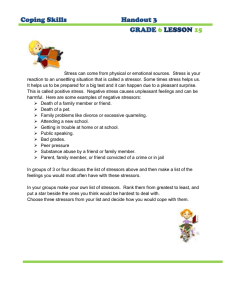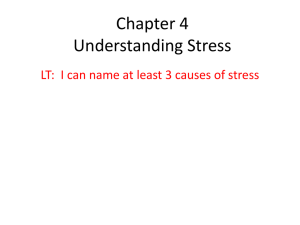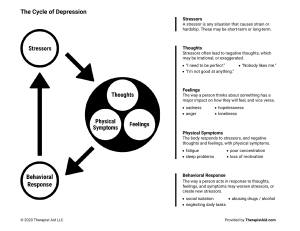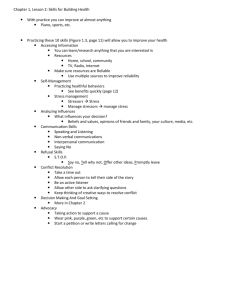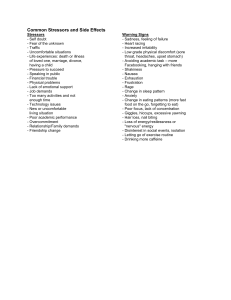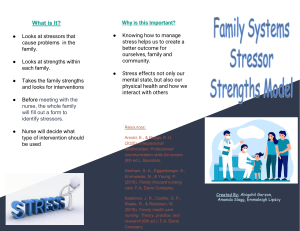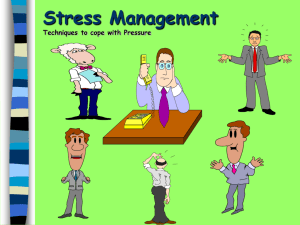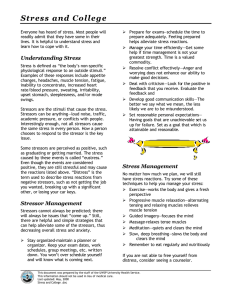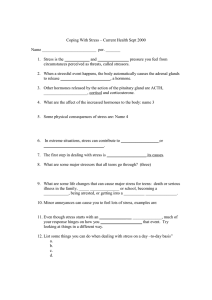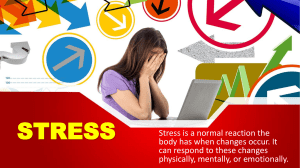Self-Assessment of Stressors
advertisement
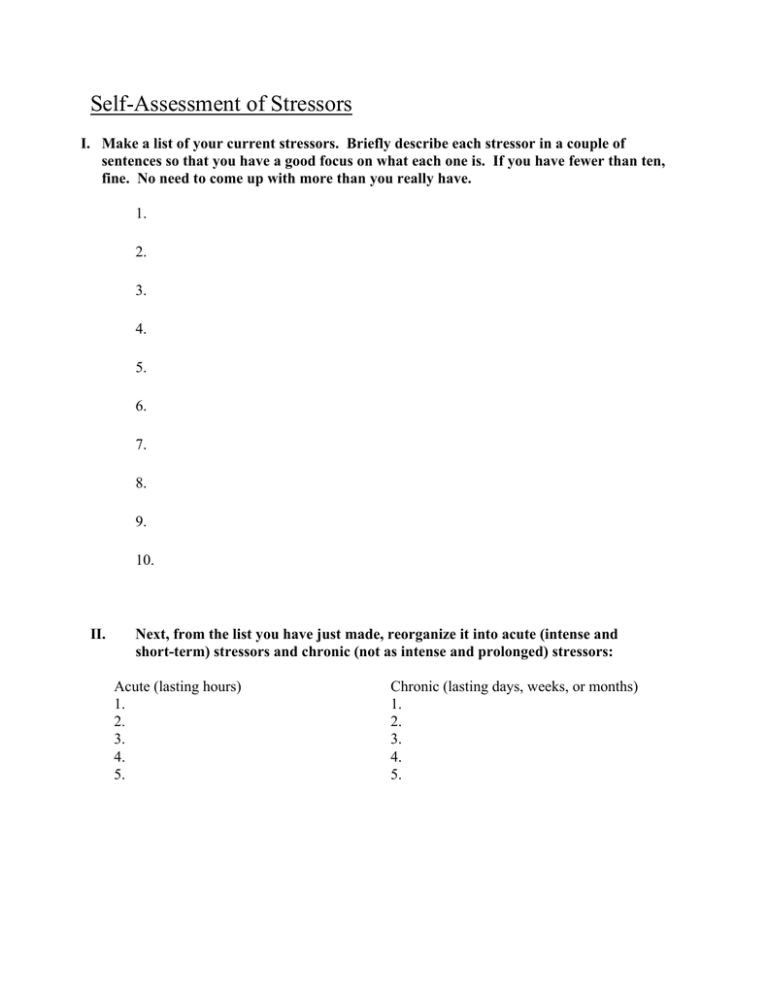
Self-Assessment of Stressors I. Make a list of your current stressors. Briefly describe each stressor in a couple of sentences so that you have a good focus on what each one is. If you have fewer than ten, fine. No need to come up with more than you really have. 1. 2. 3. 4. 5. 6. 7. 8. 9. 10. II. Next, from the list you have just made, reorganize it into acute (intense and short-term) stressors and chronic (not as intense and prolonged) stressors: Acute (lasting hours) 1. 2. 3. 4. 5. Chronic (lasting days, weeks, or months) 1. 2. 3. 4. 5. III. Now, check the box next to the stress signs that you experience in association with the different stressors you listed on the previous page. There are blank boxes to write in additional signs you may experience but are not listed: Stress Warning Signs Physical Symptoms Headaches Back pain Indigestion Tight neck and/or shoulders Stomachaches Racing heart Sleep difficulties Tiredness Dizziness Ringing in ears Behavioral Symptoms Excess smoking Grinding of teeth at night Bossiness Overuse of alcohol Compulsive gum chewing Compulsive eating Attitude critical of others Inability to get things done Emotional Symptoms Crying Overwhelming sense of pressure Nervousness, anxiety Anger Boredom–no meaning to things Loneliness Edginess–ready to explode Unhappiness for no reason Feeling powerless to change things Easily upset Cognitive Symptoms Trouble thinking clearly Inability to make decisions Forgetfulness Thoughts of running away Lack of creativity Constant worry Memory loss Loss of sense of humor

